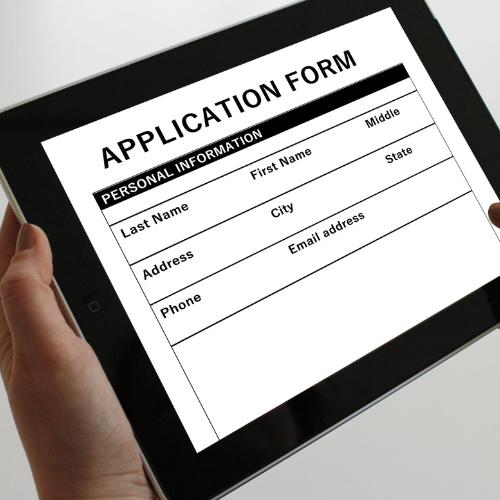Before borrowing please consider this:
Borrowing should be seen as the "last" resort after gift aid is exhausted, scholarships have been searched and applied for and the school payment plan has been considered.
Everything you need in one convenient spot
Check the out the Board Policy Section 4016.1 - Student Loan Code of Conduct
|
Cohort Year (Cohort Period) |
2021 Official (10/01/20 - 9/30/23) |
2022 Official (10/01/21 - 9/30/24) |
2023 Expected (10/01/22 - 9/30/25) |
|---|---|---|---|
|
# In Repayment |
100 |
89 |
62 |
|
# In Default |
0 |
0 |
0 |
|
Default Rate |
0.0% |
0.0% |
0.0% |

Before borrowing please consider this:
Borrowing should be seen as the "last" resort after gift aid is exhausted, scholarships have been searched and applied for and the school payment plan has been considered.
Eligibility requirements for federal student loans include, but are not limited to, all the following:
Repayment begins six months after the student graduates, leaves school or drops below half-time enrollment.
Loans cannot be certified until after the add/drop period of the semester.
Loan disbursements are made in two checks (one per semester) released no earlier than thirty days after the beginning of the semester. Loans requested for one semester only will be split in two disbursements within the same semester.
Parents may borrow for their undergraduate students. Parents would be eligible to borrow up to the cost of education minus any financial aid. Interest rates are higher for Plus Loan than regular Direct Student Loans.
Parents who wish to apply for the Plus loan may request an application from DACC or submit their own (via Internet or paper). The amount is limited by the cost of attendance and other resources available for the loan period (need or merit based awards).
If a Dependent student’s parent is denied a PLUS loan and the student request the Unsubsidized Stafford this request will be honored. The denial must be documented from the lender/servicer and filed with the Stafford loan paperwork.
An ombudsman resolves disputes from a neutral, independent viewpoint. The Federal Student Aid (FSA) Ombudsman will informally conduct impartial fact-finding about your complaints. Per their published statement: "We will recommend solutions, but we don't have the authority to reverse decisions. We will also work to bring about changes that will help prevent future problems for other student loan borrowers. This free service is provided by the US Department of Education. The Ombudsman will research your problem and determine whether you have been treated fairly. If your student loan complaint is justified, we will work with you and the office, agency, or company involved in the problem. On your behalf, we will contact other offices within the U.S. Department of Education, your private lender, your loan guaranty agency, and the servicing agency or firm collecting your loan. If your complaint is not justified, we will take the time to explain to you how we reached this conclusion." Effective February 28, 2016, please use the following information to contact the FSA Student Loan Ombudsman Group.
Via online assistance: https://studentaid.gov/feedback-ombudsman/disputes/prepare
| Via telephone: | 877-557-2575 |
|---|---|
| Via fax: | 606-396-4821 |
| Via mail: | FSA Ombudsman Group P.O. Box 1843 Monticello, KY 42633 |

Stafford Application Processing Checklist
Have you been approved for a loan at DACC and want to be sure you have completed the steps for loan processing? If yes, Click here
The packaging philosophy at DACC is to council on the loan programs as a “last” resort to meet educational expenses. Students are provide information in regards to the DACC Foundation scholarships, scholarship search engines such as FastWeb and encouraged to visit the DACC WEB page for scholarship listings. Students are also provided with information concerning the DACC tuition payment plan provided by NBS Tuition Management Company. All files are verified for the accuracy of the FAFSA date elements. Each student completes the Institutional Verification Worksheet Form and submits it with supporting documentation relevant to the Award Year before any determination of eligibility for programs begins.
The DACC Financial Aid staff do not use the FAFSA results (the ISIR) to determine if a student will request a Stafford Loan. It has been the staff’s experience that many students do not understand this question nor answer it properly. It is staff’s summation that a student must know the whole of the cost at the school as well as their funding resources before making the determination a Stafford loan is needed.
A student who completes the DACC Stafford Loan Request Form (provided with their Award Letter, in bulk in Financial Aid office lobby and on-line) and submits it to the DACC FAO will be reviewed for eligibility for the program.
34 CFR Section 668.202(e)(1) of the Federal Family Education Loan Program provides that a school may refuse to certify a Stafford or PLUS loan application or may reduce the borrower's determination of need for the loan if the reason for that action is documented and provided to the student in writing provided the determination is made on a case-by-case basis.
Semester priority processing (deadlines) are established as to the last date a student may request a loan. These are well published and adhered to. There is an appeal process to address these deadlines for extenuating circumstances.